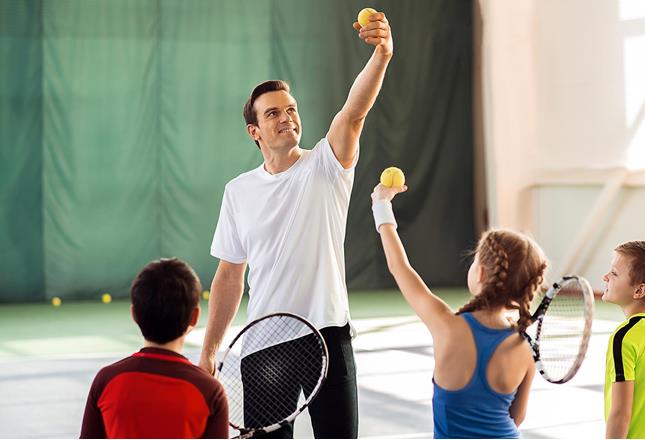
Paid coaches were the hardest hit workforce over the last year. Compared with pre-pandemic levels; paid coaching roles fell by 63% during the pandemic and are projected to return at 14% lower after restrictions ease.
The economic trauma to self-employed or small business owning coaches may threaten the supply of workforce in the post-pandemic environment. People delivering activity opportunities either on a self-employed basis or via small business - such as dance schools, martial arts clubs or other ‘class-based’ activities - reported the greatest level of disparity between income retention and expenditure reduction over the course of the lockdown.
The precariousness of the position of self-employed or small business holding coaches is reflected by the reduction in their financial reserves which have dropped by 45% when compared to pre-pandemic levels.
This strongly illustrates the challenges that self-employed or small businesses face in continuing to facilitate active opportunities. Due to the economic uncertainty caused by the pandemic, many self-employed coaches face the issue of returning to a sector with reduced capacity to host them, and therefore negatively impacting the ability to boost their income.
More positively, our results show that voluntary clubs have experienced lower than average losses of volunteers (4%) during lockdown and forecast lower losses in the post-pandemic period than other organisation types (13%), which suggests that they are well-placed to begin the process of recovery.
The capacity of the existing volunteer workforce appears to be available to community sport, although previous insight by Sport England has consistently indicated a shortage of volunteers pre-pandemic in the sector, with around 70% of sport clubs reporting a need for more support in this area.
Lisa Wainwright, CEO at the Sport and Recreation Alliance said: “If we are to truly build back better from this pandemic, we must ensure that the infrastructure is in place to allow our participants to return to activity and provide our coaching workforce with the support it requires.
“The lack of confidence in the ability for this workforce to return is a worrying sign and there is a risk of long-term damage to the sector due to a lack of professional coaching unless steps are taken at this stage to safeguard those who deliver activity.
“We have previously highlighted concerns around the availability of facilities and the anticipated reduction in junior membership. Both areas would have a substantial knock-on for our coaching workforce. Limited capacity and reduced participant numbers place the jobs and roles of our coaches under increased pressure.
“Initiatives such as the ReTrain programme delivered by CIMSPA and funded by Sport England, are excellent examples of the innovative way support can be offered. Since August 2020 it has helped almost 100 employers and enabled the sector to retool its workforce.
“It is also pleasing to see our wonderful volunteer network is ready to return but it should be noted that the clubs most concerned at losing this workforce are those involved in disability sport and those who deliver to more ethnically diverse memberships.
“It is important therefore that we look at these concerns collectively and individually. If we address the challenges which make sport and recreation less accessible, we can look more positively at an increase in post-pandemic activity levels across every community.”
Mark Gannon, CEO at UK Coaching, added: “The coronavirus crisis has had a huge impact on the nation’s activity levels and mental well-being. Therefore, having a strong and financially secure coaching workforce is vital as people return to activity.
“Our own research has shown that nearly 40% of coaches are worse off financially because of the pandemic, additionally, they also feel the cost of activity and the state of facilities are major barriers to the country becoming more active. However, the vast majority of coaches have said they want to return to coaching – and we’re ready to support them with first-class learning and development opportunities.
“We recognise the support that has been on offer from the Government, but believe further support may still be needed. Coaches are the catalyst to getting us all active again.”
It is with immense sadness that the Sport and Recreation Alliance learned of Andy Sutch’s passing last week, and we send our deepest condolences to Andy’s family and friends.
Read moreThis afternoon, the Chancellor delivered her Budget speech to Parliament, outlining decisions on tax and spending.
Read moreAhead of the Chancellor’s Budget statement on 26 November, we take a look a look at the key areas to be aware of and the work the Alliance has been doing lobbying on behalf of members.
Read moreJoining the Sport and Recreation Alliance is pretty simple, but worthwhile!
Register now